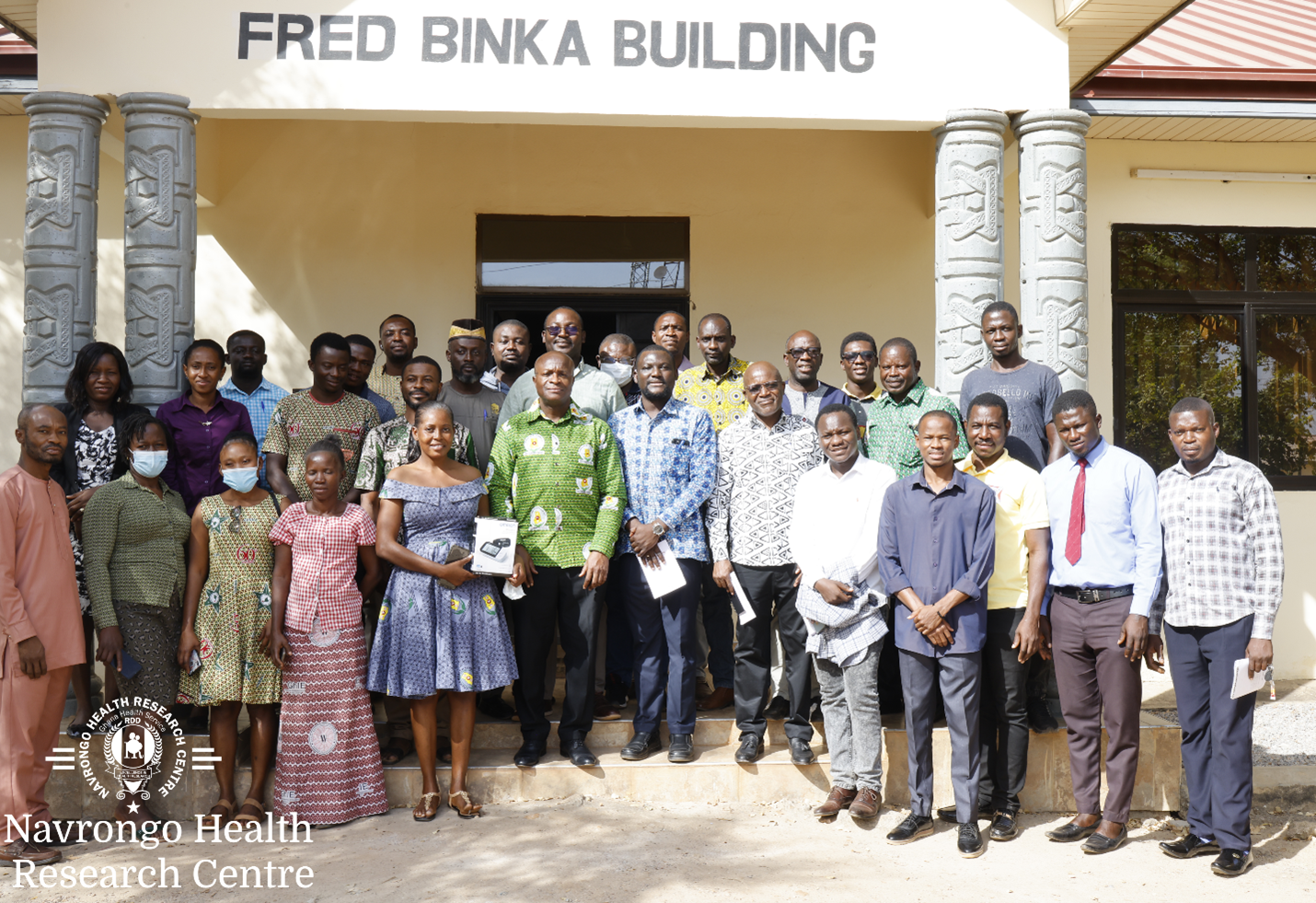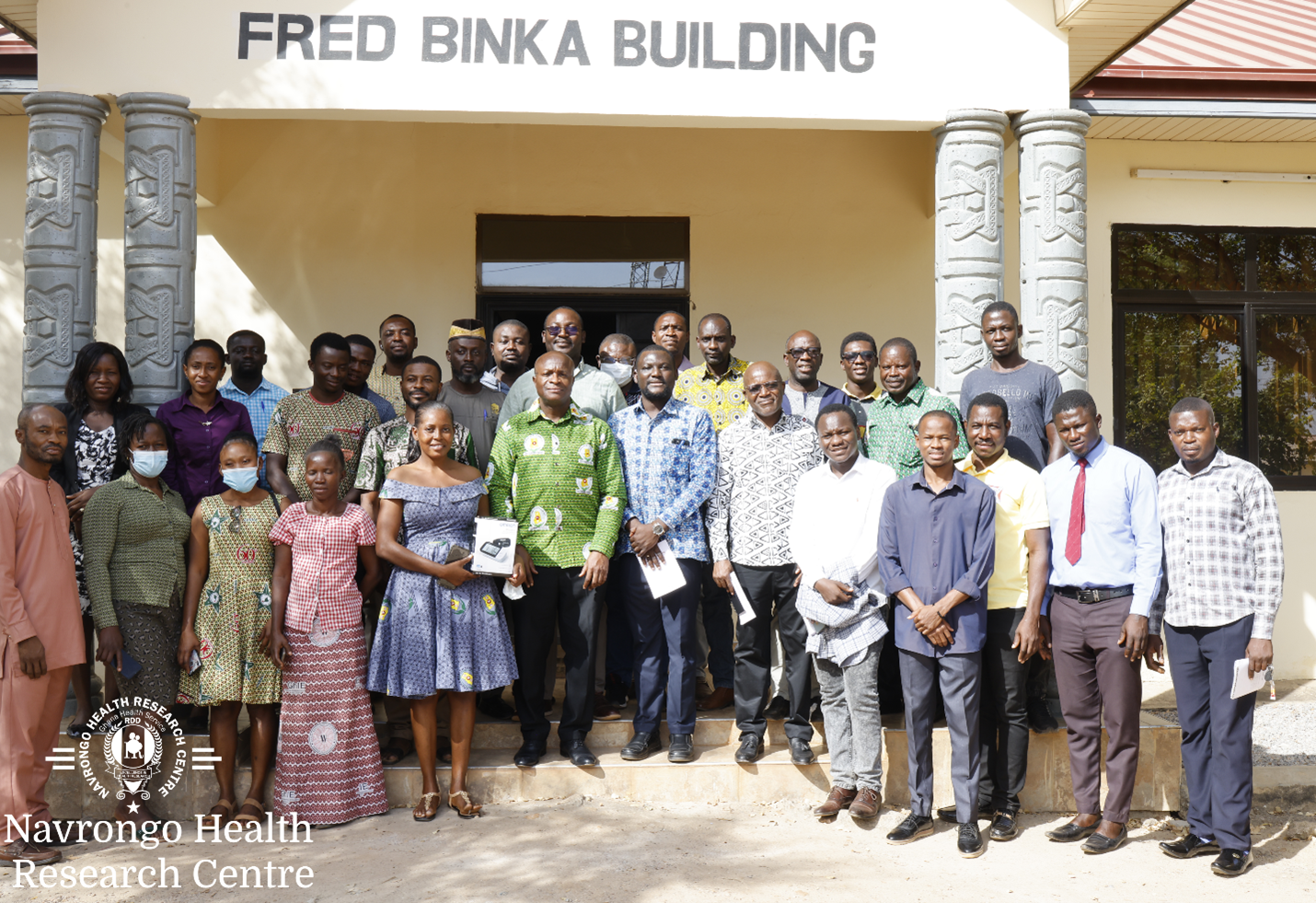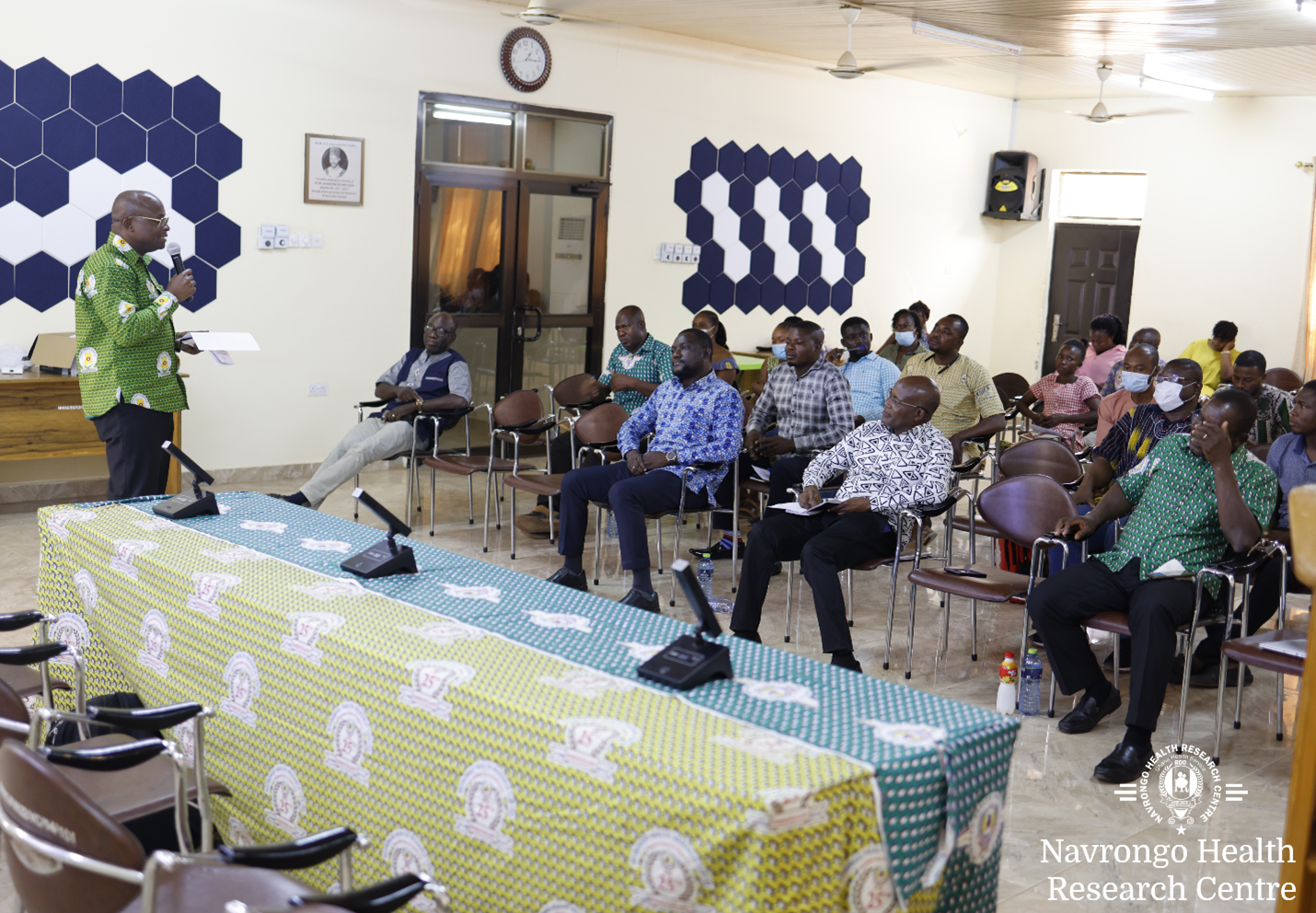
Roger Glass: The people we fund end up on the front lines
November 3, 2022
Could Africa be the future for genomics research?
February 1, 2023The study team of the Human Hereditary and Health in Africa (H3Africa), African Wits – INDEPTH partnership for Genomic Research (AWI-Gen) project shared findings of the 10-year study with health stakeholders from the Upper East Region in an engagement workshop held at the Navrongo Health Research Centre.
Dr Cornelius Debpuur, a co-principal investigator of the study, gave a general overview of the study. He indicated the study, coordinated by the AWI-Gen Collaborative Centre based at the Sydney Brenner Institute for Molecular Bioscience at the University of the Witwatersrand in Johannesburg, South Africa investigated the genomic and environmental risk factors for cardiometabolic diseases among middle-aged adults between the ages of 40 – 60 years within the two Kasena – Nankana Districts.
The Navrongo Health Research Centre, Ghana participated in the study as one of the sixth site including other sites from Burkina Faso, Kenya and South Africa. Phase I of the study was completed in 2015 and Phase II in 2022. In the 10-year run of the project, the AWI-Gen study has contributed immensely to generate and contribute knowledge to the scientific community and building capacity by training 5 researchers at the Masters level and 2 others at the PhD level.
During the whole day’s engagement workshops, investigators of the study took turns to share findings of both phases I and II of the AWI-Gen study with selected stakeholders of the study. The novel and profound findings were presented in three thematic areas, including the epidemiological data covering the six key cardiometabolic endpoints studied – hypertension, diabetes, obesity, dyslipidaemia, chronic kidney disease and atherosclerosis (presented by Dr Engelbert Nonterah); Genomic and genetic findings (presented by Dr Godfred Agongo); and Community Engagement activities carried out through a sub-study called “Community Engagement in Biobanking and Genomics (CEBIOGen) project” (presented by Mr. Daniel Enos Sekwo and Dr Raymond Aborigo). Details of the findings of these presentations are contained in another report.
Stakeholders in attendance were the regional director of health services for the Upper East Region, Dr. Emmanuel Kofi Dzotsi, deputy directors for public health, clinical care, nursing services, health research officers, community health workers, sub-districts health officers, and disease control officers. Also present were representatives of the Kasena Nankana Municipal and Kasena Nankana District health directors, representatives of the Chief executive officers of the two districts as well as assembly members.
In a welcome address, Dr. Victor Asoala, acting director of NHRC, expressed his gladness that the investigators have opted to disseminate the findings locally with stakeholders who have contributed to the success of the project. He stated that the AWI-Gen project is one of the flagship programs of the Centre because it dealt with NCDs which are most often neglected in our setting. “I am saying it is a flagship project because it is multi-country. That means it is putting Navrongo on the global health platform especially when it comes to NCDs. Also, it is a very important project because it is multifaceted, there is the epidemiological aspect, there is the clinical aspect and we have the genetics” he noted. He concluded with enthusiasm that going forward, this study will continue to generate findings that will place Navrongo and NHRC on the global map in terms of NCD research.
The regional director of health services for the Upper East Region in an address expressed delight at the 10-year-long AWI-Gen project. He was pleased to note that the project generated empirical evidence in the topic areas and incorporated community engagement as well as dissemination of project findings to major stakeholders. He further shared ongoing initiatives by the Ghana Health Service to improve service delivery with respect to non-communicable diseases (NCDs) management, especially at the primary healthcare level. He concluded by urging the researchers and healthcare professionals to work collaboratively in delivering healthcare at the various levels of healthcare delivery. He spoke of the incoming network of practice concept which will strengthen “health centres” to serve a vital role in the referral pathways. He noted that once this is done, the screening and management of NCDs at the primary healthcare levels will be more effective.
Dr. James Akazili, who is also the dean of the School of Public Health of the CK Tedam University of Technology and Applied Sciences (UTAS), in his concluding remarks expressed his satisfaction with the genetic education during the dissemination of the findings. He called for strong collaboration between the project members and the CK Tedam University of Technology and Applied Sciences. He identified sharing of data, sharing of knowledge through serving as faculty and mentoring of students as strong synergies the AWI-Gen study and NHRC and CK-UTAS can leverage for mutual benefit.



